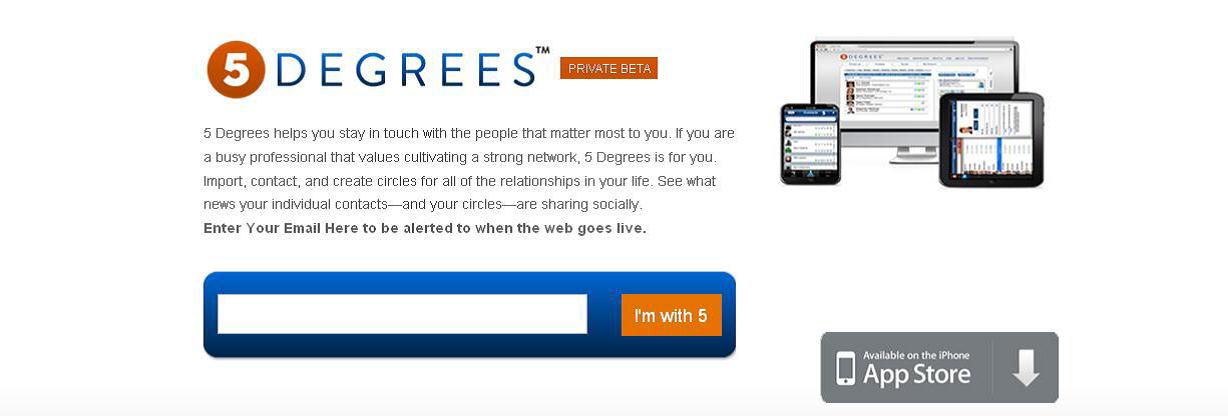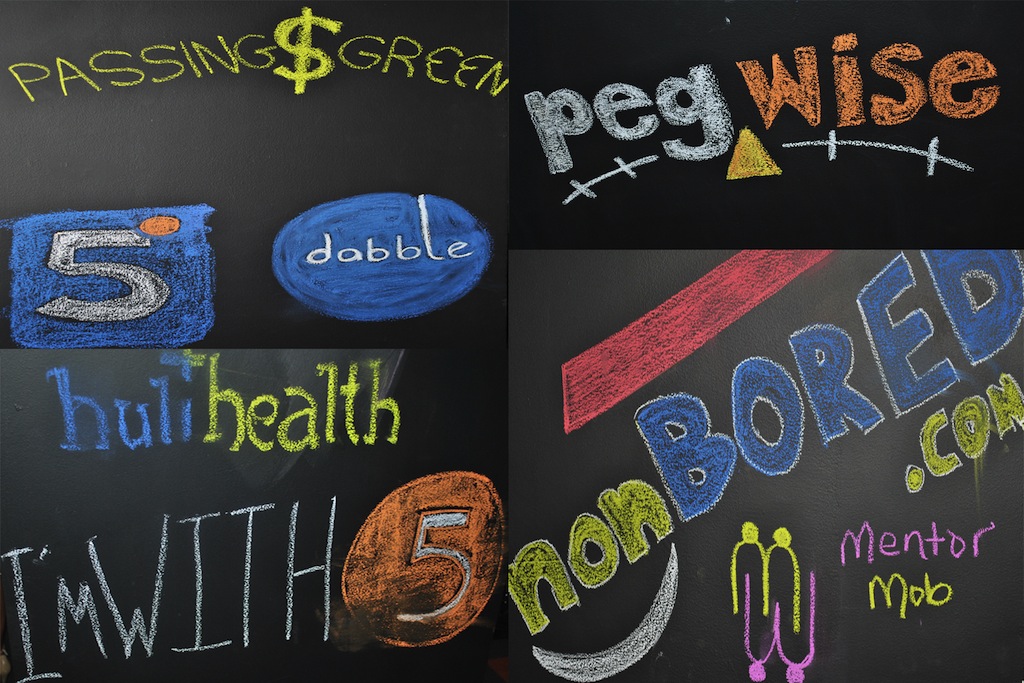This summer, The App House rebranded to 5Degrees, a mobile and web-based platform designed to make staying connected to everyone that matters to you easy.
During June and July, 5Degrees had employees, interns, and partners ranging in age from 17 to 47. Much more like an extended family unit than a traditional technology startup, our team’s diverse background, experience, and age provided great insights and presented unique challenges.
Our younger interns and employees–ranging in age from 17-24–had very different relationships with email, Facebook, LinkedIn, Twitter, and text messaging than the partners, who range from 28-47, have. For example, the younger staff were not heavy LinkedIn users because they had not been on the open job market. They preferred Facebook and text messaging, and they generally viewed emails as overly formal methods of communication. Twitter was hit-or-miss, and location-based social products were embraced by varying degrees depending on the individual. Finally, our younger employees had grown up in a gaming-heavy world and had expectations that work should be fun. Most importantly, they had the energy and the drive to suggest sensible ways to make this happen.
On the other hand, we partners live in a segmented world where Facebook friends and LinkedIn connections are somewhat distinct; where we embrace Twitter largely as a self (or business) marketing tool, and where we use text messages when we need to get hold of someone immediately, but not as the primary form of communication. Emails are our default, to a fault, and location-based social applications tend to fascinate the more technologically savvy Gen Xers because of their powerful monetization opportunities (not necessarily because we want everyone to know where we are at all times).
We quickly learned that these different approaches to using the same tools created some internal communication challenges. Emails received slower responses than text messaging because the whole team did not live on email.
References my partners and I would occasionally make to “The Office” fall on deaf ears; our young developers out of DePaul’s Video Game Design program have never experienced an “Office” setting; our office, complete with Nerf guns and electronic helicopters, is the antithesis to corporate America.
 Gaming
Gaming
The interest and desire to make real world more game-like is a hot topic right now. This “gamification” movement, led by people such as Jane McGonigal, a renowned game designer, and Seth Priebatsch of SCVNGR, manifests itself in ways large and small. While obvious impacts include the proliferation of “badges” and “achievements” on many platforms and applications (prizes for accomplishing things) the real impact of gamification is when “gaming mechanics,” or the mechanisms that make a game fun, are applied to things that are not immediately associated with being fun–to positive results. Take, for example, work.
Matt, our longest tenured employee (we hired him in November 2010), invented the “Office Game.” In the “Office Game,” each week kicks off with a group meeting and team members lay out weekly goals, or “quests”; points are rewarded for failed attempts and successful completion of tasks. Each week, the winner gets control of the office stereo, the best Nerf gun and gets to put their name on the board. Although the “Office Game” is not perfect, it has created excitement around taking risks on solving problems and has definitely moved us ahead on certain developmental challenges.
A practical application of gaming? Our summer intern, Matt Kopecki, applied practical gaming lessons to create “the import game” in 5Degrees. When you import contacts from your local address book in our new app, you play a simple game called “Pop the Icons,” distracting you from the time it takes for us to import your contact list. This game has received rave reviews, as it is a refreshing alternative to watching a progress bar.
As the summer winds down, we have been losing our youngest interns to senior year in high school, sophomore and senior years in college. But even though our average age will shoot up, having the opportunity to work as part of such a diverse, multi-generational team has definitely helped us understand better how different people engage with life…ultimately improving and optimizing our vision for 5Degrees.









